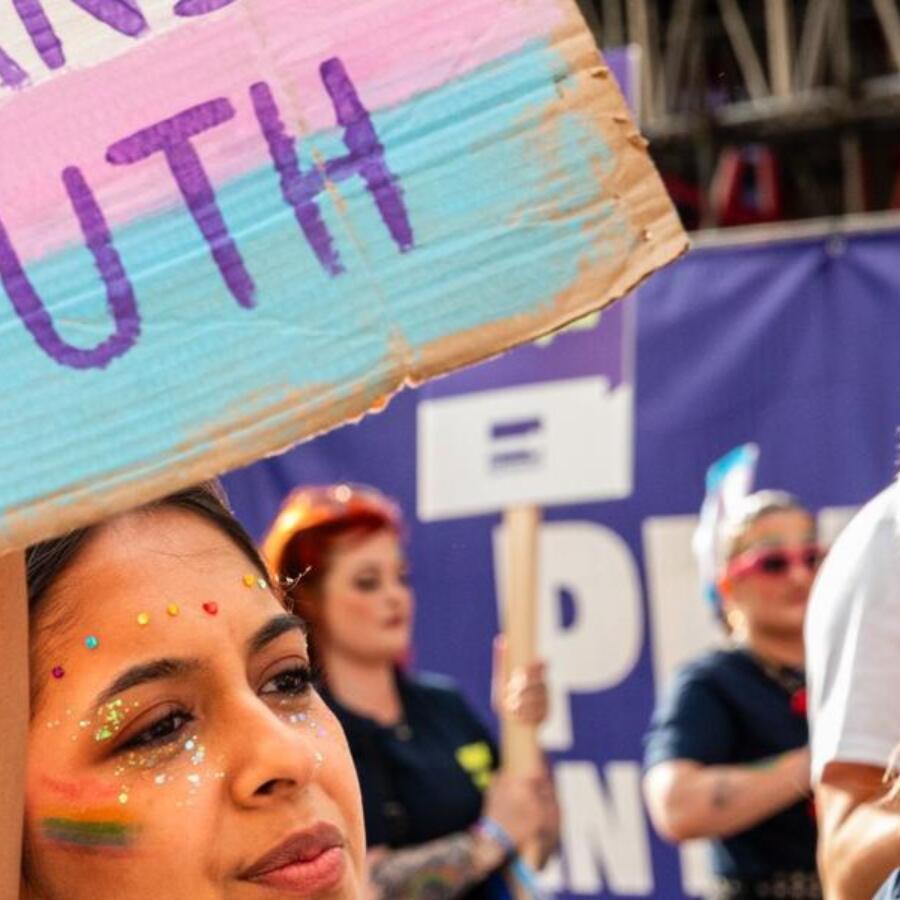
Gender Recognition Act 2004
The Gender Recognition Act was a landmark piece of legislation passed in 2004. It provided a mechanism for transgender people to obtain legal recognition of the gender they are living in (what the legislation calls "acquired gender"). It enables trans people to change their birth certificate and other legal documents like a marriage certificate to match the gender they are living in. This was an incredibly important piece of legislation, which not only meant trans people's identities were recognised in law, but also helped protect their right to privacy.
Gender Recognition Certificates (GRCs)
A Gender Recognition Certificate, or GRC, is an official document that legally recognises a person as the gender they identify with (man or woman only) rather than the gender that accords with their sex that was recorded at birth. Once a person has a GRC, their acquired gender is recognised in law for things like marriage, pensions, and other official documents.
To apply for a GRC, a person must provide evidence that they have lived in their acquired gender for some time and that they genuinely identify as that gender. The process involves submitting medical reports from the UK and evidence proving that they have lived in that gender for at least two years. The documentation is then submitted to a Gender Recognition Panel, made up of people with legal and/or medical qualifications, who will then review the application and issue a Gender Recognition Certificate.
Many trans people say that the process to obtain a Gender Recognition Certificate is unnecessarily bureaucratic, burdensome and lengthy - especially during the vulnerable period of transition.
Can you be recognised as trans without a Gender Recognition Certificate?
According to the 2021 Census for England and Wales, there are estimated to be around 262,000 people (0.5%) trans people in the UK; however, these figures are not officially accredited and may vary.
Not all transgender people choose to go down the route of obtaining a Gender Recognition Certificate. Only 9,000 full Gender Recognition Certificates have been issued since the Gender Recognition Act 2004.
Trans people do not need to get a GRC to identify and live their lives in their acquired gender, but they can only be legally recognised in their acquired gender if they have a GRC.
Trans people who do not have a GRC are still legally protected from harassment and discrimination under the Equality Act 2010 through the protected characteristic of gender reassignment.
Supreme Court and GRCs
In April 2025, the UK Supreme Court ruled that for the purposes of the Equality Act 2010, the words “woman”, “man” and “sex” refer to a person’s biological sex.
This Court focussed on transgender women who have a Gender Recognition Certificate (GRC). However the ruling impacts upon both trans women and men. The Equality and Human Rights Commission (EHRC) produces guidance to help individuals, organisations and service providers understand how to comply with the Equality Act 2010. Following the Supreme Court ruling, they have started the process of updating their guidance, with significant consequences for trans people's access to public services.
It is important to note that all trans people are still protected under the Equality Act 2010 from discrimination and harassment on the basis of gender reassignment.
One of the main questions that has been raised following the Supreme Court judgment is whether there is still a meaningful purpose to having a Gender Recognition Certificate. It highlights the wider uncertainty about how the Gender Recognition Act will operate in practice.
One reason people apply for a GRC is to protect their privacy, so they don’t have to disclose being trans in everyday situations, like at work or when showing documents. The Gender Recognition Act even makes it an offence to share information about someone’s GRC without their consent. But after the Supreme Court ruling, there are clear questions about how the right to privacy of GRC holders will be respected. A trans man who has been living privately as a man may now be forced to out himself, for example by having to use women’s toilets at work.
The Equality and Human Commission’s (EHRC) draft guidance that responds to the Supreme Court Ruling highlights why the fight for equality must continue. Stonewall is deeply concerned about the draft guidance and believes that unless it is seriously revised it risks creating a hierarchy of rights, justifying exclusion of trans people rather than inclusion as a starting point, and fails to provide the practical explanations which organisations need to comply with the Equality Act 2010. Stonewall is working closely with Parliamentarians and LGBTQ+ groups to ensure the guidance is thoroughly scrutinised during the parliamentary process. Read more about our work on the EHRC.
Gender Recognition Reform
In 2017, then-Prime Minister Theresa May announced plans to reform the Gender Recognition Act (GRA), aiming to make the process of legally changing gender simpler, more inclusive, and less focused on medical requirements; this became widely known as "Self-ID".
In 2018 the then-Conservative Government published a consultation on reform of the GRA in England and Wales. The consultation received over 100,000 responses, with 64% of respondents saying a diagnosis of gender dysphoria should not be required in the future. The Government decided not to change the criteria in the GRA but moved the process online and reduced the fee.
In 2023, the Scottish Government passed the Gender Recognition Reform (Scotland) Bill to change the process to get a GRC in Scotland; however, it was subsequently blocked from receiving royal assent, and becoming law, by the UK parliament.
Since becoming trans inclusive in 2015, Stonewall has actively campaigned for trans equality. Stonewall’s approach is based on listening to and working with trans communities, legal experts, policymakers, researchers, academics and supporters.
Stonewall’s position on the Gender Recognition Act
- Stonewall statement on Gender Recognition Act reform
- Statement on Gender Recognition Act reform in Scotland
- Statement on the new Gender Recognition Act inquiry
- Stonewall statement on delay to Gender Recognition Act reform
- Stonewall statement on Labour's Gender Recognition Act reform proposals
- Stonewall Scotland statement on reform of the Gender Recognition Act
- Statement on reports that key Gender Recognition Act reforms are set to be dropped




